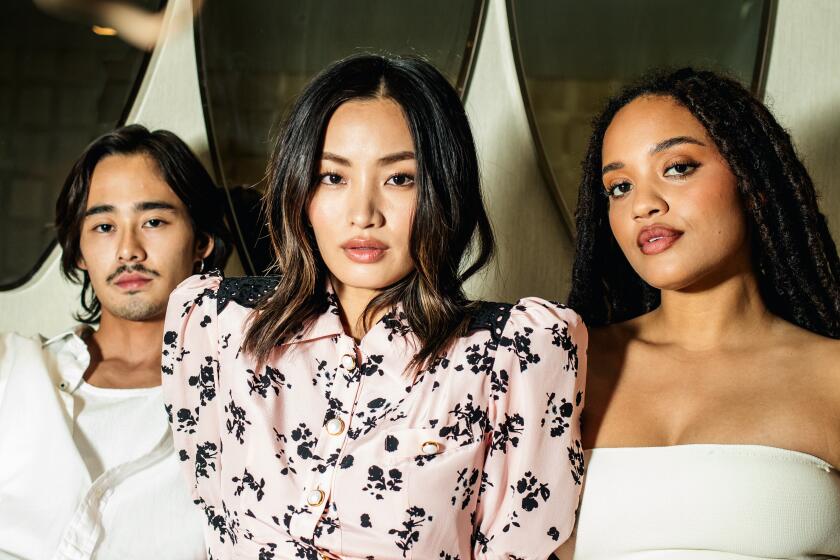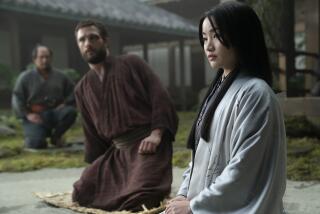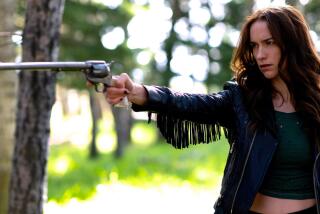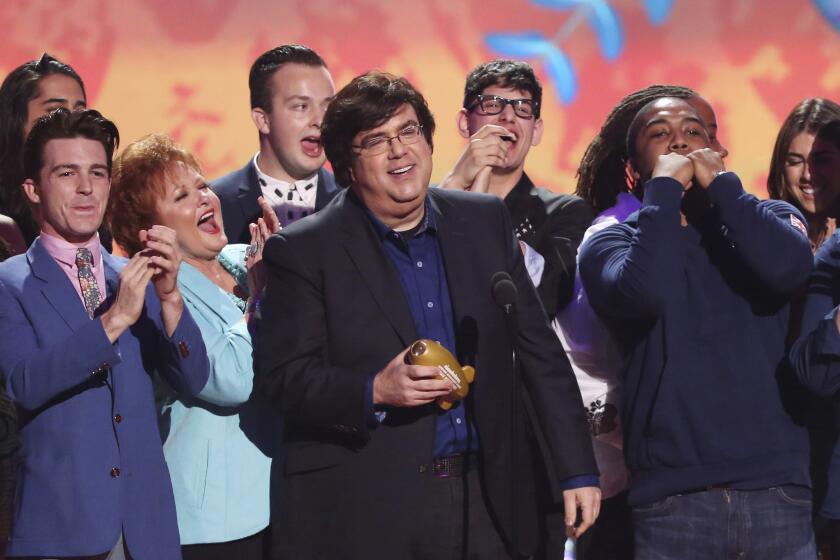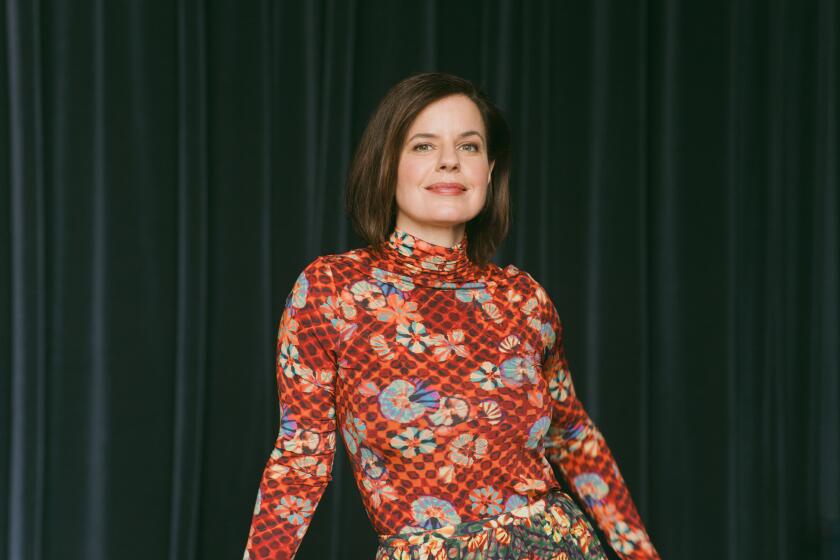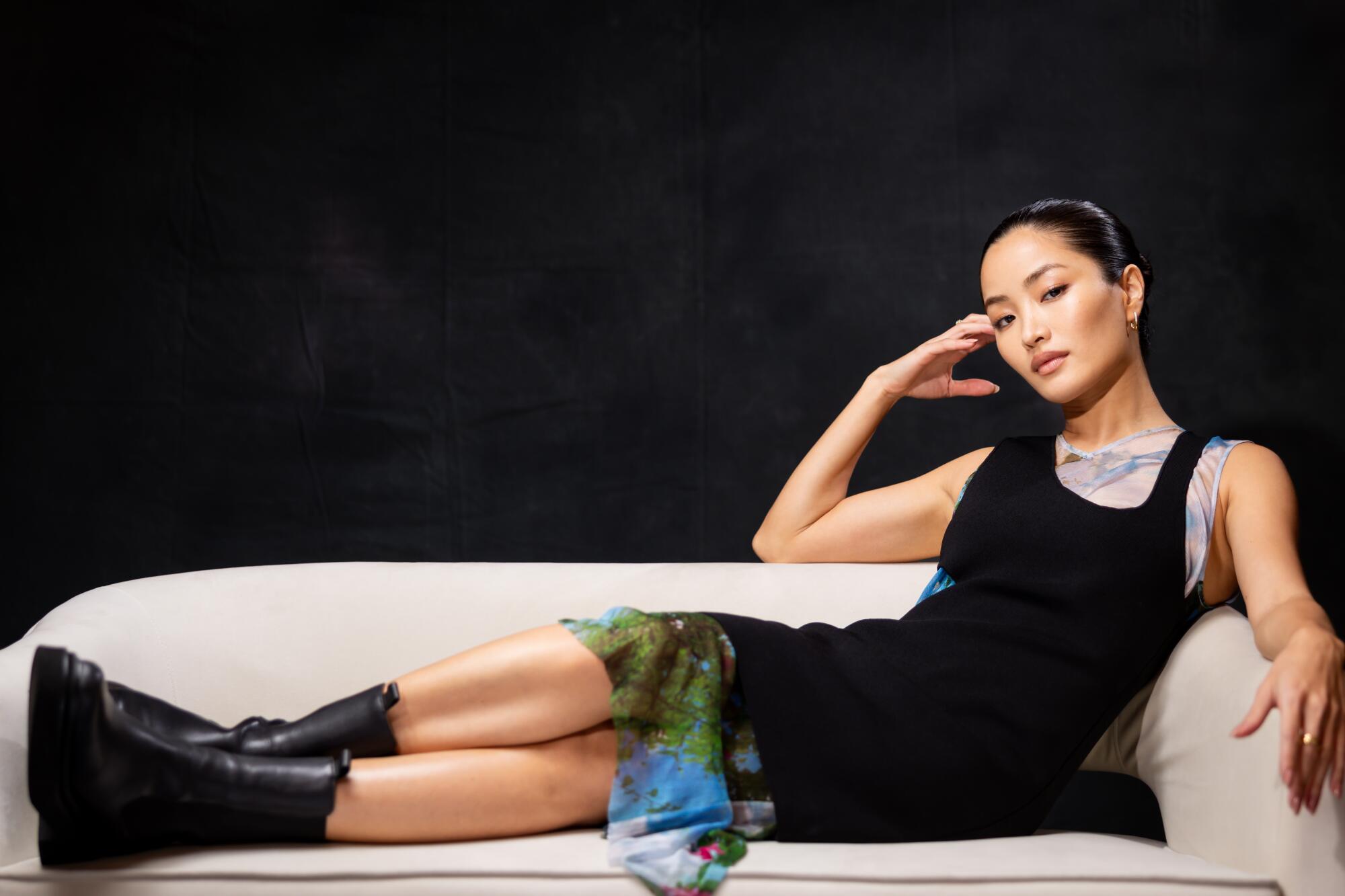
One of the first questions Anna Sawai had for showrunner Justin Marks when they first met to discuss “Shōgun” was, “Why are you remaking this?”
Co-created by Marks and Rachel Kondo, FX’s adaptation of James Clavell’s bestselling novel has been a long-gestating project. But at the time, Sawai’s perspective was limited to what she could glean from her audition materials, which included a character description, a synopsis and a portion of a script involving a bathing scene that was anything but revelatory.
“I wanted to know that they weren’t just trying to do another white savior story,” says Sawai. “That they were going to do it right this time.”
The 10-episode limited series, premiering Feb. 27, takes place in Japan in the year 1600. The historical drama primarily follows a core trio that includes Lord Yoshii Toranaga (Hiroyuki Sanada), a warlord and regent of Japan’s five-member governing council whose life depends on outmaneuvering his political rivals, and John Blackthorne (Cosmo Jarvis), an English pilot serving aboard a Dutch ship that washes up in a village within Toranaga’s territory.
Sawai portrays Toda Mariko, a noblewoman and Christian convert who is called on by Toranaga to serve as an interpreter between him and his new foreign captive. Devoted to her faith as well as her duties as a vassal, a wife and a daughter of a disgraced family line, Mariko’s journey involves figuring out her purpose and how to live it out on her own terms.
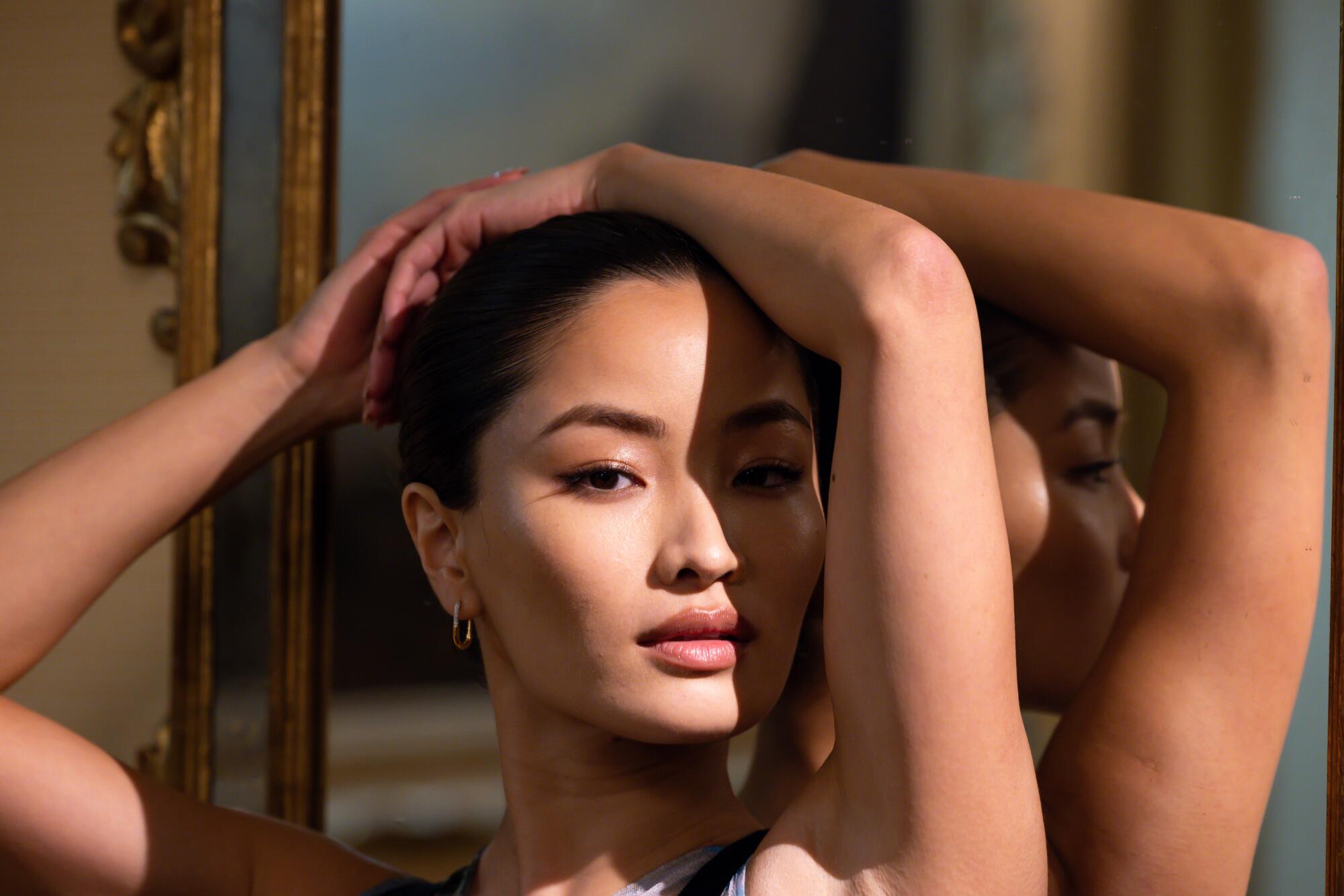
“I don’t think I knew how deeply affected I was going to be by Mariko,” says Sawai while curled up in an armchair one recent evening in February amid a whirlwind “Shōgun” press tour that would see her crisscrossing the Pacific Ocean between Tokyo, Los Angeles and New York. “Her story felt so personal to me.”
Enough time has passed since “Shōgun’s” 10-month shoot wrapped for Sawai that the series she’d filmed following the project, Apple TV+’s “Monarch: Legacy of Monsters,” has already been released. But she is full of emotions as she collects her thoughts about her experiences as Mariko.
‘Monarch: Legacy of Monsters’ executive producers Chris Black and Matt Fraction, as well as stars Anna Sawai, Kiersey Clemons and Ren Watabe, discuss how the show leans into Godzilla’s Japanese roots and tries to get it right.
“It was pretty tough,” says Sawai as she reminisces about moments on set where she was overwhelmed by Mariko’s feelings or when she was frustrated for not performing to the standard she believed the character would have set for herself. “She felt very real to me and the weight of [her story] was very heavy.”
Even beyond the nuances of Mariko’s character and story, the role is undeniably demanding. Mariko required an actor who was fluent in both English and Japanese and could perform in both languages comfortably. “Shōgun’s” historical setting meant wearing layers of kosode — the standard Japanese garment at the time — as well as a long and heavy wig. As a noblewoman of that era, Mariko is also proficient with a naginata, a long-bladed polearm akin to a spear, and has occasion to wield it.
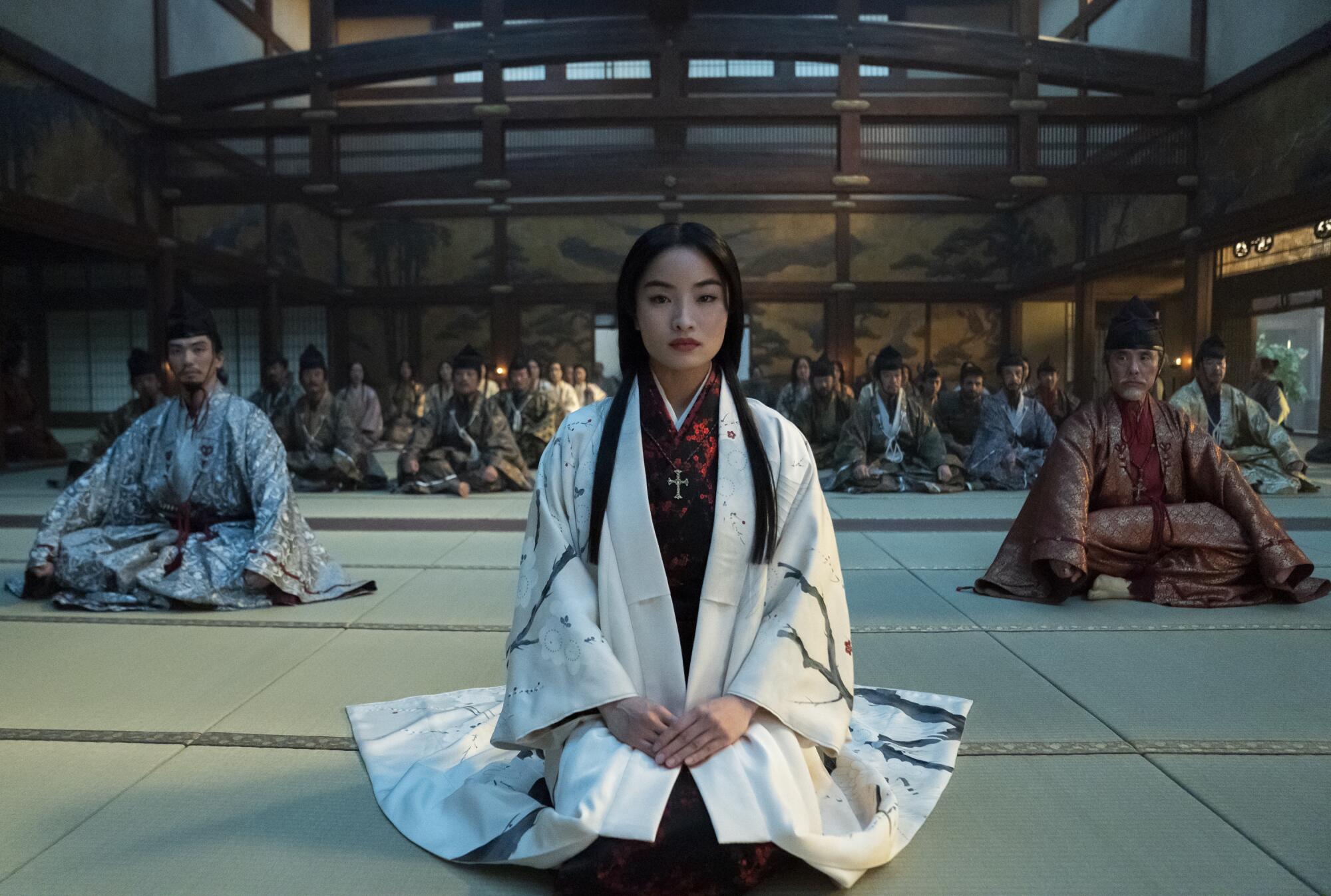
Marks admits that at times he had doubts that they would ever be able to cast the role.
“We couldn’t just cast someone OK for this part, it had to be someone extraordinary,” says Marks during a recent video call. “The problem is, we didn’t know what extraordinary was. You just know it when you see it.”
Luckily, the “Shōgun” executive producers saw it in Sawai.
“When we saw it in the form of Anna, we saw someone who brought a modernity” to the role, says Marks. “Someone who could approach it from a place where she’s playing a humanity beneath the surface of the text [that] we needed for Mariko to work.”
Her “layer of contemporary attitude,” as Marks calls it, is what enables audiences to see Mariko as a sympathetic character. It’s rooted in Sawai’s awareness of the various Hollywood tropes and misrepresentations that have plagued Japanese women onscreen for decades. It was one of the reasons she was wary of the bathing scene used for the audition, which involved Mariko joining Blackthorne in a hot spring.
“I didn’t want it to be another depiction of Japanese women being sexualized by white men,” says Sawai. “I wanted this to be the right portrayal of women.”
But early conversations with Marks dispelled that worry, as he and the show’s writers were also intent on being mindful of problematic conventions of the genre.
“Justin said everything that I needed to hear,” says Sawai, adding in Japanese that it put her at ease.
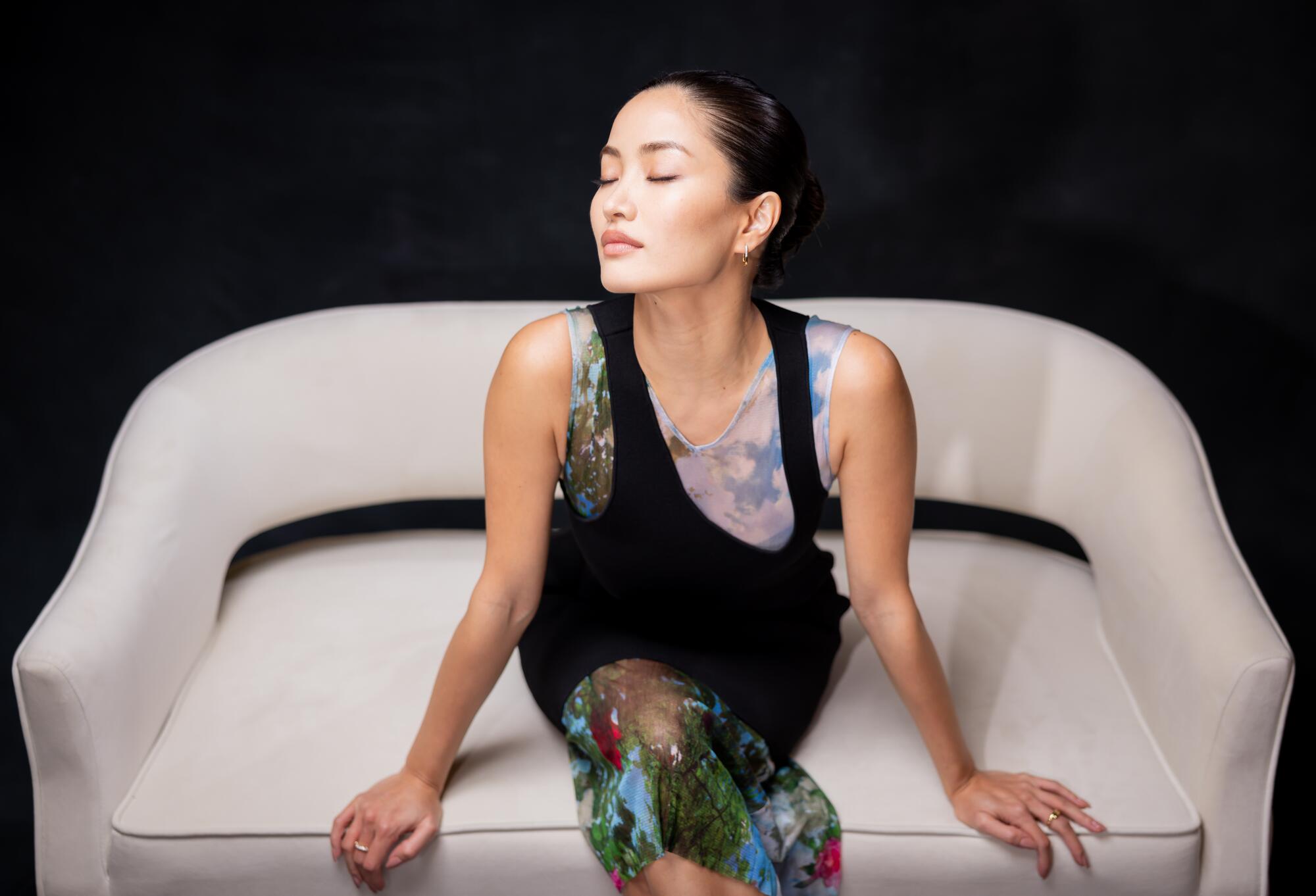
This “Shōgun” is less a remake of the acclaimed 1980 miniseries than a completely new imagining that uses Clavell’s novel as its launching point. With an impressive cast of Japanese actors, most of the dialogue is in Japanese with subtitles. Care was taken to include the Japanese characters’ perspectives and to ensure a level of cultural and historical authenticity that should be expected from a proper jidaigeki — a Japanese period drama.
The series marks Sawai’s third high-profile television project in as many years. In 2022, the New Zealand-born Japanese actor appeared in the Apple TV+ adaptation of “Pachinko” as Naomi, a businesswoman struggling with the societal constraints and expectations of 1980s Japan. Last year, she made her debut in Legendary’s interconnected Monsterverse alongside Godzilla in “Monarch: Legacy of Monsters” as Cate Randa, a former schoolteacher trying to sort through her grief, trauma and complicated family dynamics in the aftermath of the kaiju battle that destroyed her home. (Sawai says she was looking to do “something fun” after the heaviness of “Shōgun.”)
With credits that also include 2021’s “F9: The Fast Saga” and the 2019 BBC/Netflix drama “Giri/Haji,” Sawai is no stranger to playing Japanese characters, but “Shōgun” is her first Japanese historical drama. And since Sawai had no prior jidaigeki experience, preparing for the role involved learning how to wear and move in a kimono, getting familiar with period language (which is as distinct from contemporary Japanese as Elizabethan English is from its modern American cousin) and attending horse riding camp while in Japan.
“They allowed me to learn from zero and they really set me up with the best team that was available,” says Sawai, who acknowledges she was nervous about her inexperience in the genre as production got underway.
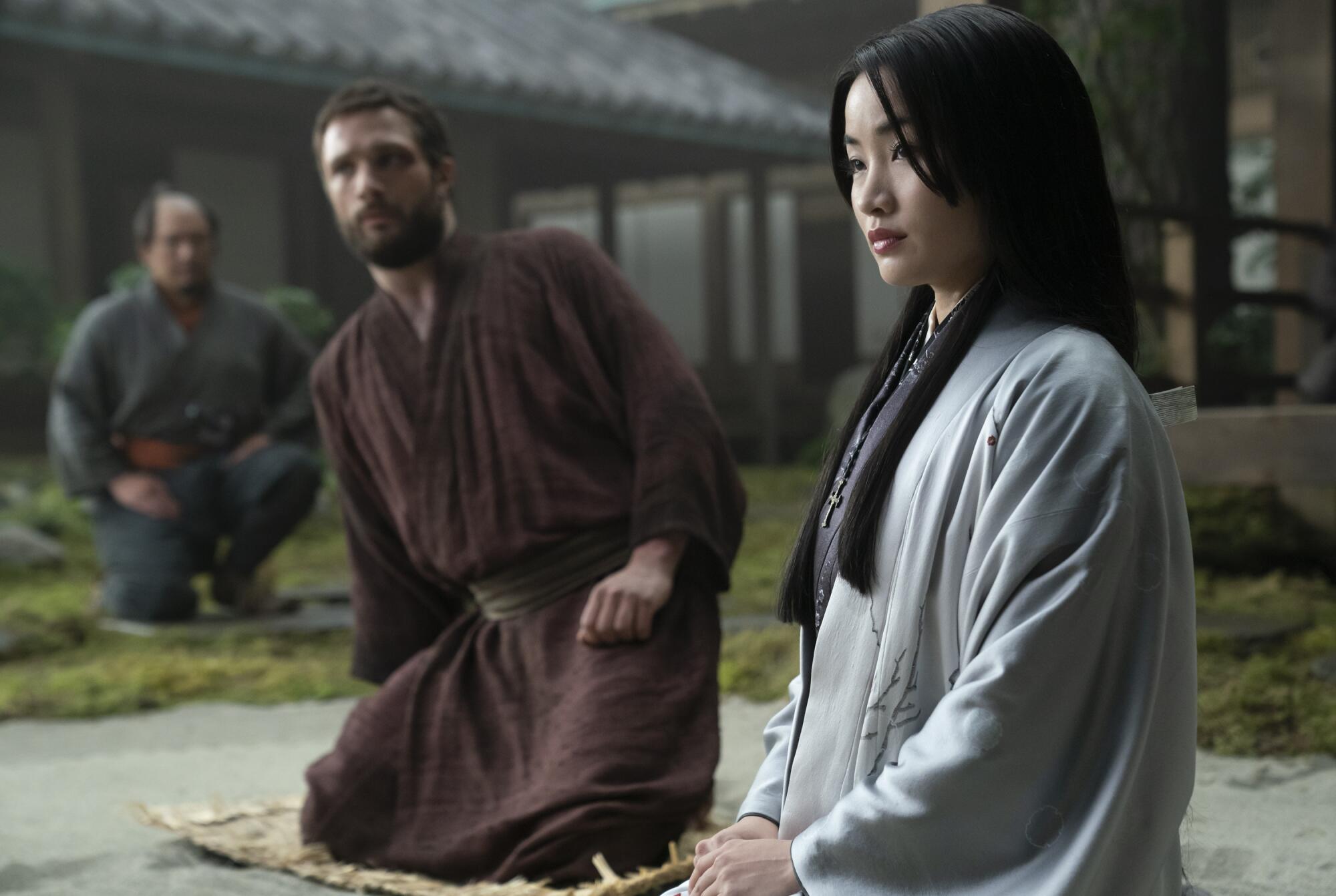
During this early preparation, Sawai was also reunited with her former stage sword fighting instructor. The school Sanada recommended, Takase Dojo, was the one she had attended previously while working in the Japanese entertainment industry as part of a J-pop group years prior.
“To go back to them and to be able to kind of work with them in a collaboration now instead of me asking them to just teach me, that was a pretty surreal experience,” says Sawai.
Sawai was also a bit intimidated about meeting Sanada, who in addition to starring in the series served as a producer. She discusses how gentle and generous Sanada was with his time and guidance with esteem.
“I could feel that if I had any questions, I could go to them at any time,” says Sawai. “He loves this project and he really wanted it to be the best.”
Sanada was someone Sawai could turn to when she felt stuck, particularly from the pressure she was putting on herself.
“I would ask him about what I need to do or ‘What am I not doing right?’“ says Sawai. “I think I looked at him like Mariko looks at Toranaga-sama.”
A piece of advice from the veteran actor that helped Sawai navigate how to direct Mariko’s emotions was simply to feel it, but “try to hide it, because that’s what Mariko would do.” It clicked, Sawai says, because it’s something every Japanese woman is used to doing.
In an email, Sanada praised Sawai as “talented” and “a hard worker.”
“In every episode, she asked questions and practiced independently until she was satisfied,” says Sanada. “I think only she could have played this role.”
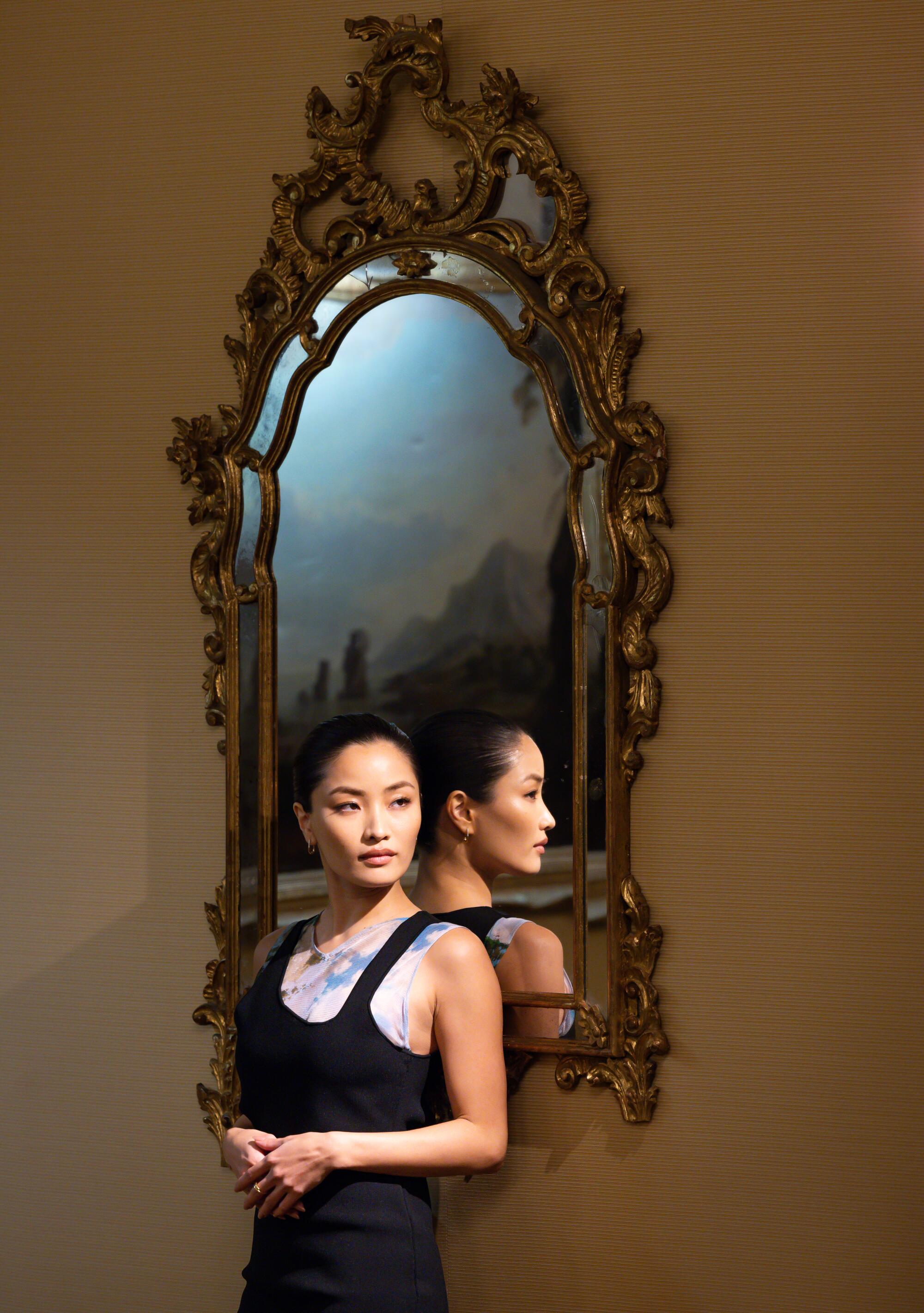
Sawai’s “thoughtful and considerate” questions and her “commitment to excellence” were also among the things that struck Kondo over the course of the production. (She also made sure to mention the numerous times she spotted Sawai sitting on the floor of an office with the “Shōgun” staff’s dogs.)
“Anna is the kind of person, in the way that Mariko is the kind of character, that doesn’t stop asking questions until she gets at some level of understanding,” says Kondo. “I just feel like that assiduous pursuit of some level of truth sets her apart from a lot of people.”
Kondo was another person Sawai would turn to on difficult days when she felt she wasn’t delivering a performance that Mariko would have wanted. Among the things Kondo would share during these conversations were stories about her own Japanese grandmother who was her personal inspiration for Mariko.
“I don’t think [Rachel] understands how important she was to the character,” says Sawai. “Mariko is a little bit of everyone. Hosokawa Garasha-san, [the real-life counterpart to the fictional Mariko]. James Clavell’s Mariko. Rachel and her grandma. It’s a little bit of me. It’s a little bit of every woman in Japan who has suffered.”
As challenging as the experience was, Sawai is grateful and proud of the care and effort it took to ensure “Shōgun” portrayed characters and Japanese history with nuance and authenticity. After having to caution friends of certain Japanese elements being “a little off” on otherwise beautiful projects in the past, Sawai appreciates not having to worry about that for this series. It’s made her want to be more intentional in her choices moving forward.
“I know myself better now and I know what makes my heart move,” says Sawai. “From now on, I only want to do projects that move me.”
More to Read
The complete guide to home viewing
Get Screen Gab for everything about the TV shows and streaming movies everyone’s talking about.
You may occasionally receive promotional content from the Los Angeles Times.
